Go back
Madrid hosted the EU Space Cybersecurity Hackathon 2025, merging AI, post-quantum cryptography, and space cybersecurity in real-world satellite telemetry challenges. Five international teams competed, tackling EMP scenarios, RAG deployments, and cyber threats. The winning teams advanced secure firmware and protocol-layer resilience for European space systems. The event set a new benchmark for European collaboration, protecting orbital assets and fostering interdisciplinary cybersecurity talent.
October 21, 2025
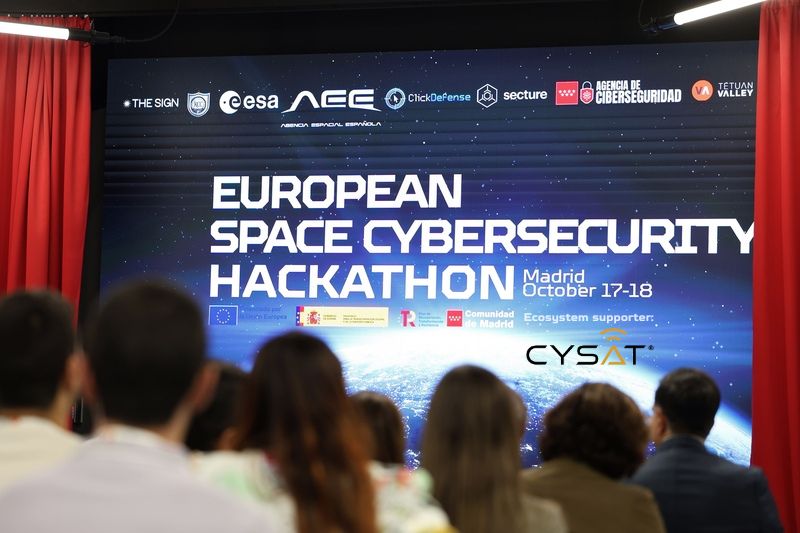
The European capital of innovation became the launchpad for a new era in cyber defense as Madrid hosted the EU Space Cybersecurity Hackathon 2025 on October 17-18. The event was in a way pioneering, as the hackathon merged artificial intelligence (AI), post-quantum cryptography (PQC), and space cybersecurity within real-world, satellite telemetry-based challenges.
Participants – including satellite engineers, senior telecommunications experts, cybersecurity specialists, ethical hackers, and aerospace professionals – came from across Spain, Italy, Germany, and Luxembourg, forming five international teams. Some represented their companies, while others met and collaborated for the first time on site.
Over a 24-hour mission, participants confronted simulated but highly realistic threats – GPS spoofing, signal jamming, and supply chain attacks – under the guidance of Europe’s top mentors in AI, cryptography, and space systems security. Teams built and defended space-ready cybersecurity solutions, integrating retrieval-augmented generation (RAG) pipelines and post-quantum cryptography to secure mission-critical systems in orbit.
The hackathon featured distinguished speakers and mentors from the forefront of Europe’s defense and space sectors:
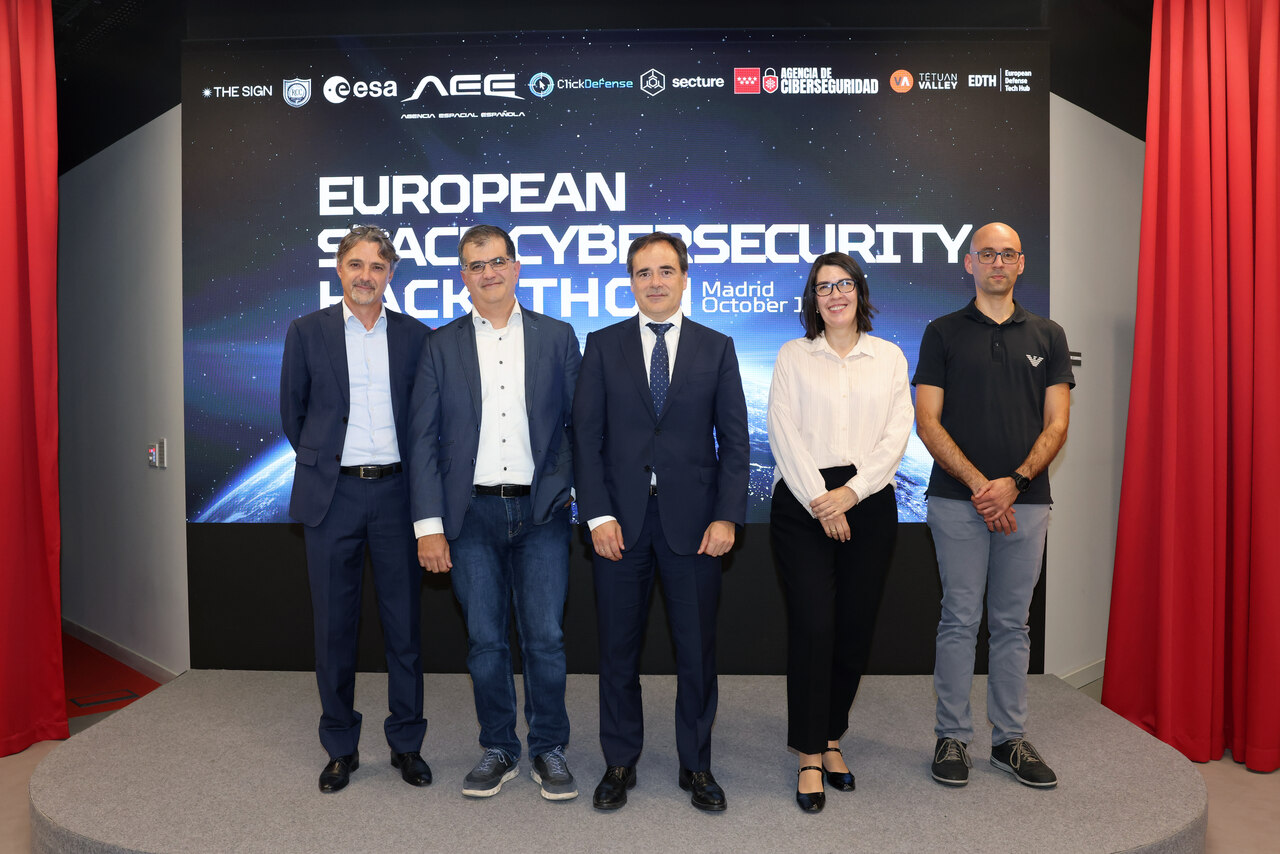
Massimo Panzeri (European Space agency (ESA) · César Carmona (Novaspace) · Alejandro Las Heras (Agencia de Ciberseguridad de la Comunidad de Madrid) · Dulce Sánchez (Agencia Espacial Española) · Gabriel González (IOActive)
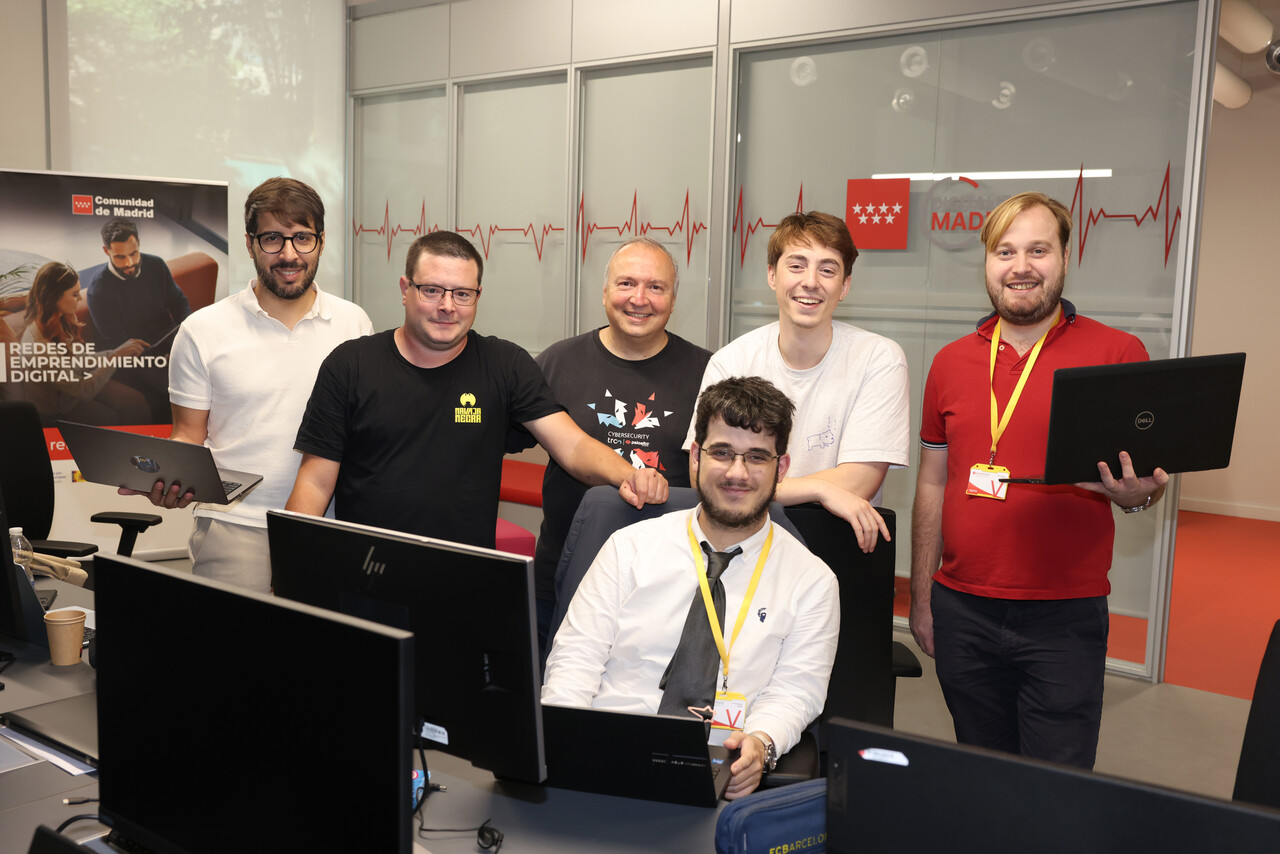
William Ferguson (Thales Cyber Solutions Luxembourg & ethicallyhackingspace) · David Morenas Vega (RCC Advisory) · Ricardo Stefanescu (Puffin Security, Universidad Francisco de Vitoria) · Ernesto Sánchez (Orange Spain) · Israel Nadal (OT Cybersecurity Specialist) · Manuel García Cortés (University of Salamanca) · Luis Crespo Lavaggi (Data Science Instructor)
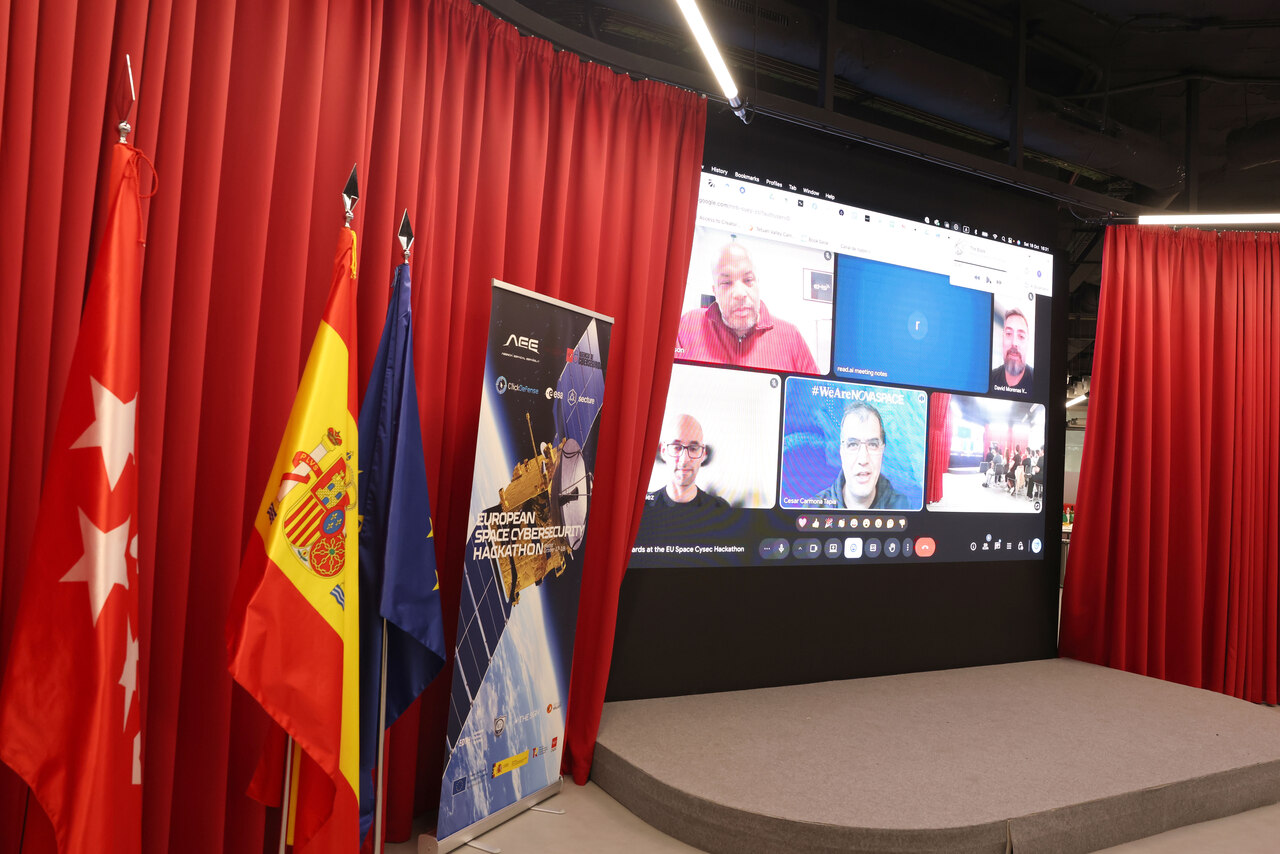
The central challenge placed participating teams inside a high-stakes European space crisis simulation:
Scenario: An electromagnetic pulse (EMP) event has degraded EU space-ground connectivity. Five surviving ground stations remain as the last operational nodes supporting satellite command, telemetry, and mission situational awareness.
Competing national delegations must rapidly deploy Retrieval-Augmented Generation (RAG) applications that integrate OpenAI and N2YO, ingest operational files, and secure, monitor, and defend those applications while responding to evolving operational and adversarial challenges across 24 hours.
Each component was driven by live satellite telemetry data, bridging academic research with operational security realities across Europe’s space sector.
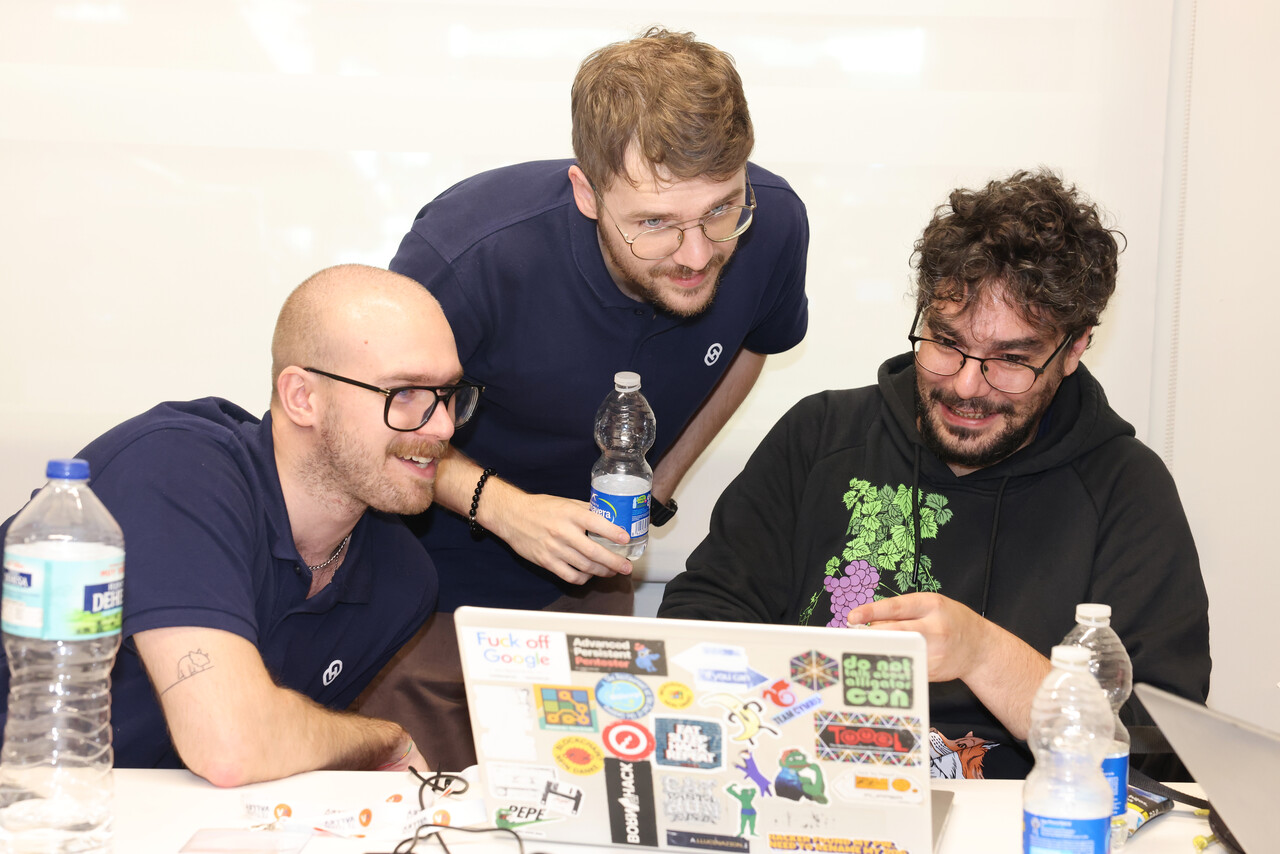
The exercise tested engineering, AI governance, red teaming, incident response, and operational resilience under extreme stress. Throughout the simulation, judges introduced network disturbances, RF interference, spoofing and replay attacks, and insider threats to assess each team’s technical precision, adaptability, and procedural readiness in live conditions.
.jpg)
“There has never been a hackathon quite like this one that unites space, cybersecurity, and artificial intelligence not as separate domains but as an integrated operational reality,” said William Ferguson, Hackathon Architect and Cyber Capability Development Consultant at Thales Cyber Solutions Luxembourg.
“Participants operated as real incident responders defending AI-enabled space platforms using real-world tools such as METEORSTORM, CSA AICM, MITRE ATLAS, OWASP Gen-AI, MISP, and the Elastic ELK Stack. This wasn’t just an exercise – it was a deliberate act of shaping the future space-cyber workforce.”
After an intense 24-hour operation, three teams emerged as top innovators:

3rd Place – Italian Team (HWG Sababa)
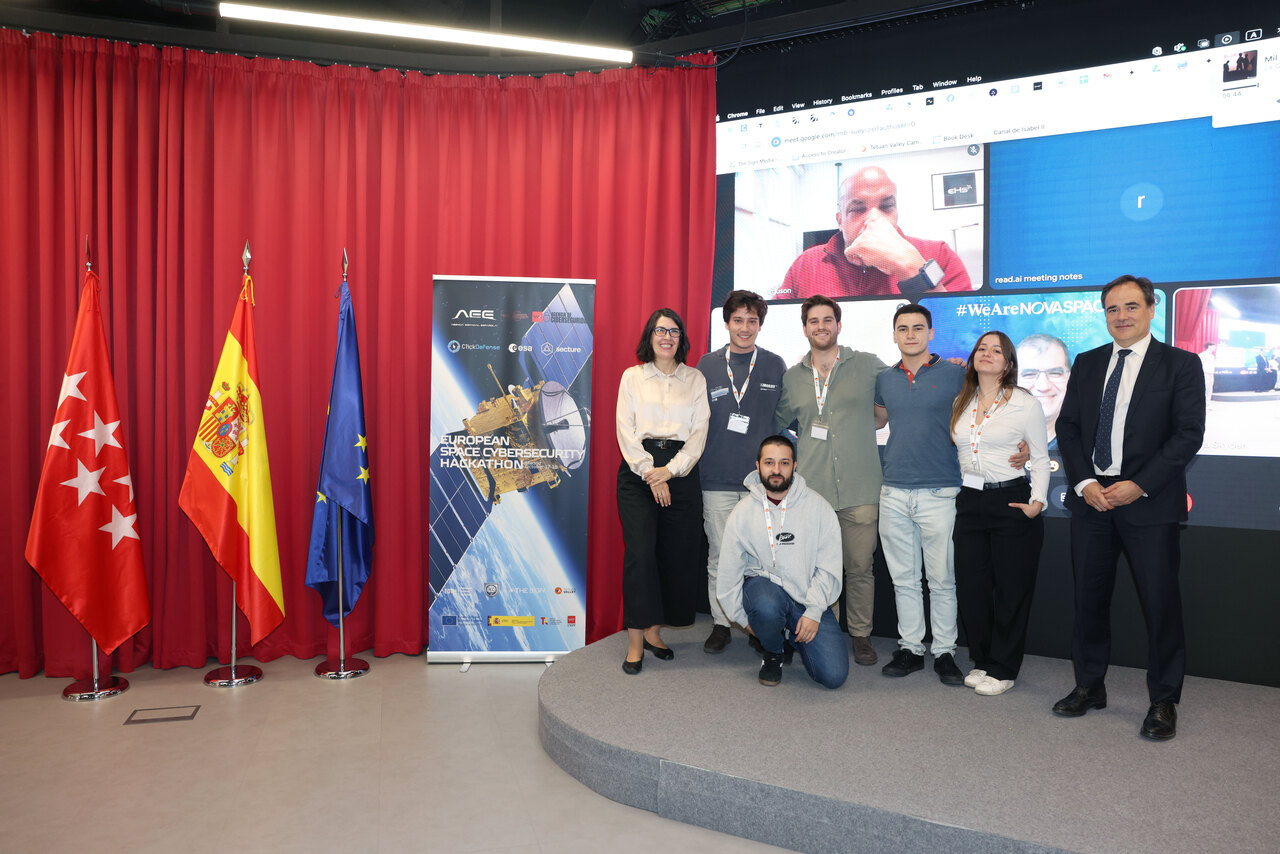
2nd Place – Spanish Team of cybersecurity experts from Amazon, Telefónica, Sateliot, telecom & satcom engineering

1st Place – International Team (Germany | Spain | Israel) of experts from OHB Digital Connect GmbH, Keyfactor, and Arboleda Intelligence working with EGNOS 3v within INDRA & Airbus, the SeRANIS - Mission (OHB & LuxSpace), and the TANGO mission (ISISpace & ESA) – and advancing secure firmware and protocol-layer resilience for space systems.
Their solution advanced secure firmware and protocol-layer resilience for European space systems, setting a new standard in applied satellite cybersecurity.
Pablo López Torres, investor, tech advisor, co-founder at Secture and jury member says: "The technical level of the EU Space Cybersecurity Hackathon 2025 was remarkably high. The exercises went far beyond conventional challenges – they combined AI, post-quantum cryptography, and real-world satellite security scenarios in a way that felt both realistic and deeply engaging.
Participants had to reason about telemetry, signal spoofing, privacy, and secure communication under realistic constraints, making it one of the most technically demanding and enjoyable hackathons I’ve seen. The overall design reflected genuine space-grade cybersecurity complexity rather than simplified simulations, setting a new benchmark for what an applied cybersecurity competition can achieve".
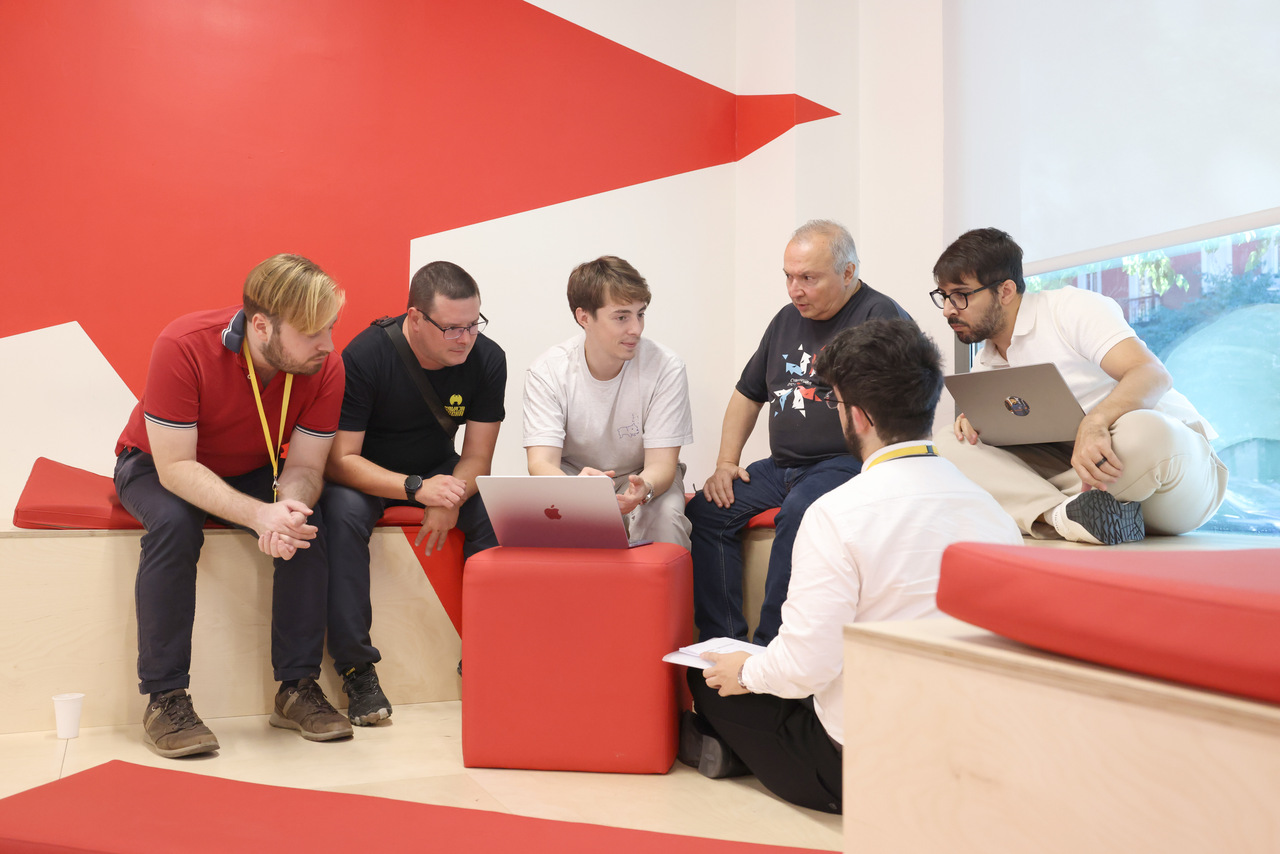
Jonatan Domenech Arboleda from the winning team says: “This event brought together top European space and cybersecurity experts (including OHB, GMV, INDRA, ORANGE, and AIRBUS) to design next-generation encryption methods that can protect space communications against quantum-era threats.
Since this milestone, we are now capable of providing space operators, ground stations, and satellites (CDH and PDT) with cutting-edge security technology – ensuring communications remain secure both today and in the quantum future.
For ISISPACE and ESA, this technology represents a must-have strategic capability. It can be implemented to secure communications with TANGO satellites (NTRO and CARBON) or any other mission, making our systems significantly more resilient to cyberattacks and ensuring long-term data integrity and confidentiality in orbit”.
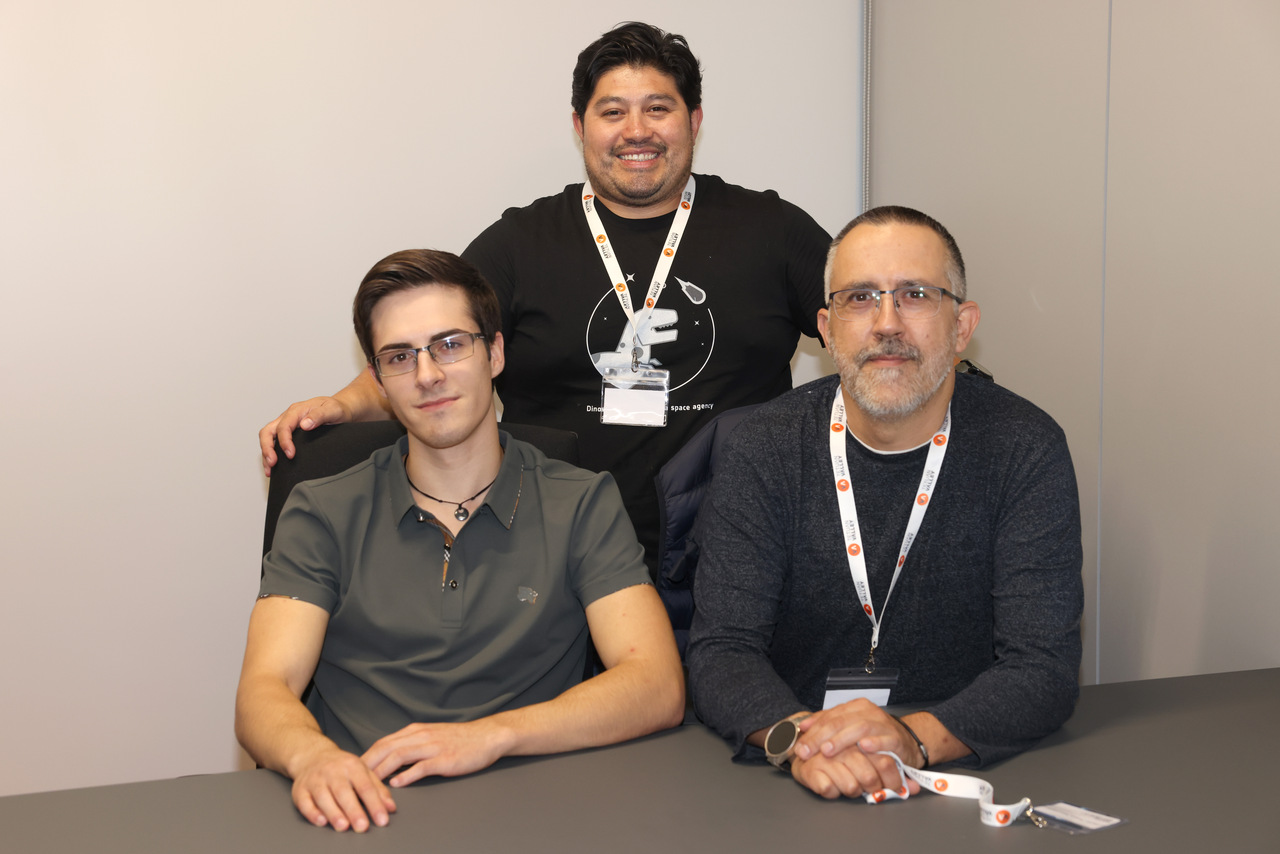
The teams, energized by the intensity and collaboration of the hackathon, are already discussing new challenges to tackle together. Meanwhile, the organizers are preparing the next edition of the event, which is expected to introduce hardware components for an even more realistic, space-grade cybersecurity experience.
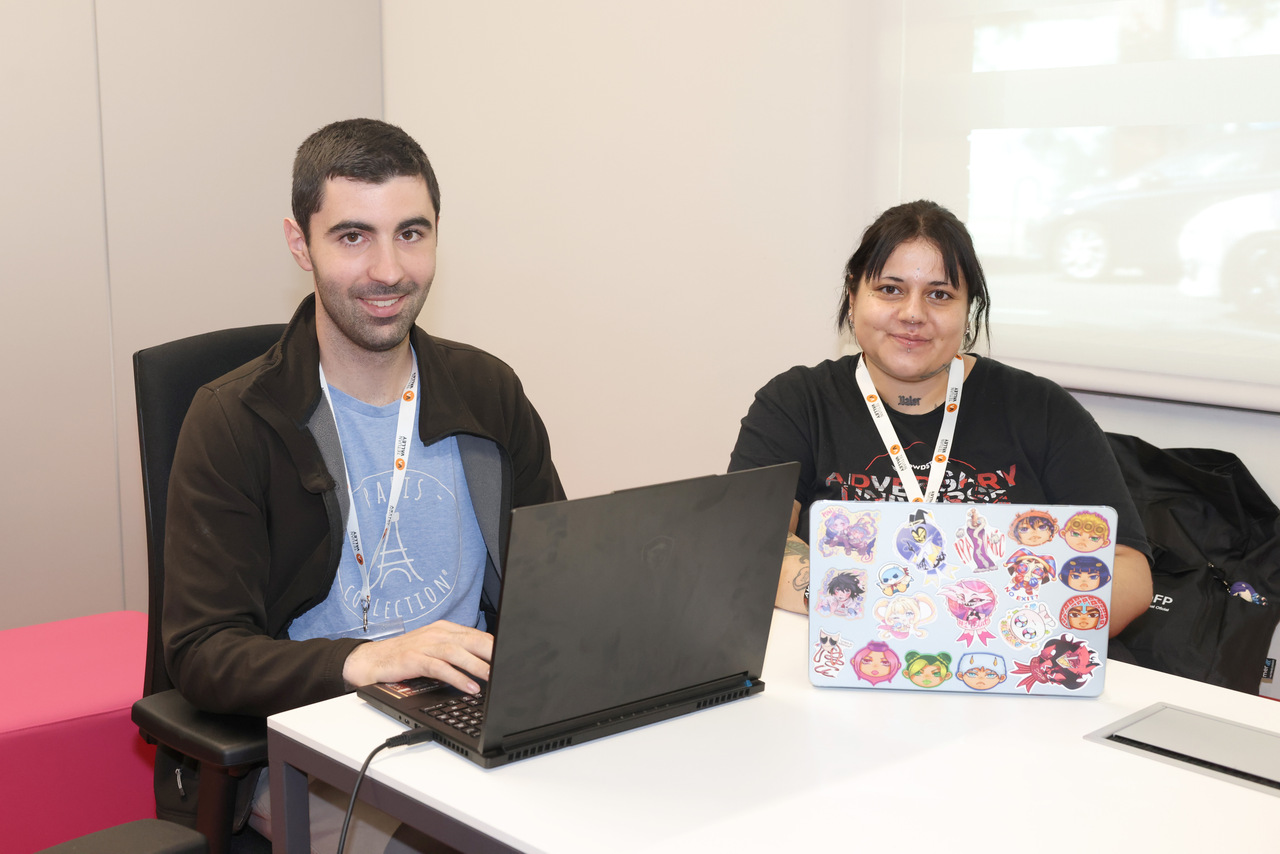
The EU Space Cybersecurity Hackathon 2025 set out to establish a new benchmark for interdisciplinary collaboration, bringing together academia, industry, and public institutions to strengthen Europe’s technological sovereignty in space. The event also aimed to accelerate the development of the next-generation space-cyber workforce, fostering interdisciplinary talent at the intersection of artificial intelligence, cybersecurity, and space systems.
Cause the future of space security is collaborative, intelligent, and resilient – protecting not only Europe’s orbital assets but also the integrity of the digital infrastructure that connects and safeguards its societies.
.jpg)
La Agencia Espacial Española (AEE) – coordinating Spain’s national and international space policies, advancing innovation and national security through satellite systems
ClickDefense – INCIBE-recognized award-winning cybersecurity company
Secture – provider of secure digital and software solutions
CYSAT – the world’s largest event dedicated to space cybersecurity
CyberMadrid – the Cybersecurity Cluster of Madrid
La Agencia de Ciberseguridad de la Comunidad de Madrid, reinforcing Madrid’s leadership in European cybersecurity collaboration
Tetuan Valley – Europe’s first non-profit pre-accelerator program
European Defense Tech Hub – driving defense-tech innovation across Europe
RCC Advisory – experts in cybersecurity for critical defense operations
THE SIGN.MEDIA – cybersecurity media and ecosystem for terrestrial and spatial infrastructure
Author: Tatiana Skydan, co-founder at THE SIGN
Photos: Ania Lewandowaska
You can support TheSIGN by becoming our SATELLITE. Click to learn more about sponsorship.